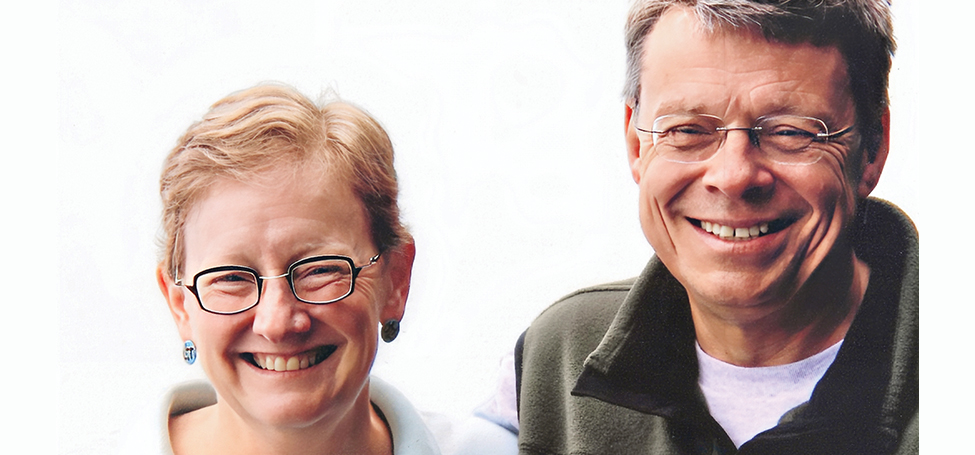
Responding to Climate Change Requires Coordination
In 2018, Craig Murphy ’74 returned to Grinnell College as a consultant to help start the global development studies concentration.
“The way in which public policy for global level problems is developed and becomes effective requires a multidisciplinary approach,” says Murphy, who taught international relations at Wellesley College from 1981 to 2022, where he is the Betty Freyhof Johnson ’44 Professor Emeritus of Political Science. “At places like Grinnell, you have to talk to faculty across many different departments. I was brought in to basically teach a faculty group interested in global policy. The main component was to help faculty to start talking to each other.”
Murphy would like Grinnell’s faculty members to come together again to address Grinnell’s approach to a climate change curriculum. He and his wife, JoAnne Yates, have provided a $500,000 gift to help develop climate change coursework and activities.
The Craig N. Murphy ’74 Climate Change Fund will enhance coordination between faculty and make resources available for the study of climate change at Grinnell.
In his life’s work, Murphy has explored complex problems at international scale, with particular attention to global inequalities. The former president of the International Studies Association, Murphy teaches about governance for global-level problems, which can only be solved by having institutions operate above the level of national governments.
“Most of my research has not focused on climate change,” he says. “It’s focused on issues like the relative poverty of the Global South, and the institutions that work to change that. But looking forward to the global problems that are going to be of concern to the generation now in college, there’s no question that climate change and related problems are the really big things. Those are in crisis. We are already destroying more habitat and species than has happened in any previous era. Decisions made over the next 20 years are going to determine whether we reach various break points.”
When Murphy and Yates, the Sloan Distinguished Professor of Management Emerita at the Massachusetts Institute of Technology, were discussing making a gift, Murphy reached out to Grinnellians he’s stayed in touch with over the years to help identify an area where funding could help trigger a curricular innovation that otherwise might take longer to happen. “I wanted to know what fields needed that kick,” he says.
Murphy talked with former Alumni Council member Robert Ruhl ’76, who in turn suggested a conversation with Rosenfield Professor Wayne Moyer. Murphy was a student in one of Moyer’s classes during his first year of teaching at Grinnell (1972–73), and they have stayed in touch.
“Wayne told me Grinnell was doing well in lots of major global policy areas, but were not quite there with climate change,” Murphy recalls. “This gift has a lot to do with the long-term commitment of Wayne Moyer, who is still thinking in his 80s about what students of the next generation need.”
Moyer was appreciative of the commitment made by his former student. “Craig Murphy has made a wonderful gift to Grinnell College to help faculty and students expand and focus our work to address climate change,” Moyer says. “Craig’s long-term commitment to resolving global issues was already evident in his work as a student that I noticed in the first seminar on international relations I taught at Grinnell in spring 1973.”
The fund will provide financial support to faculty from any discipline for activities related to the study and teaching of climate change, such as faculty workshops, the development of coursework, attendance at trainings and conferences, purchase of equipment or materials, and travel for research or participation in political processes. The fund may also support student experiential learning opportunities or be used in support of Grinnell’s new African Diaspora Studies Department. Distributions will be determined by the dean of the College.
“This gift provides an extraordinary opportunity to urgently respond with enhanced teaching and learning about this critical global issue,” says Beronda Montgomery, vice president for academic affairs and dean of the College. “I’d like to thank Craig and JoAnne for this generous gift that will help equip Grinnell students with the tools to understand climate crisis and how they can contribute to possible solutions.”
In addition to setting up the endowed fund, Murphy and Yates contributed $50,000 for immediate use to support faculty summer workshops on climate change curriculum and associated programmatic offerings. Murphy says this was important because faculty need the time to sit down with each other and think about what kind of work they can do.
Growing up in a military family, Murphy moved often. He lived in Colorado Springs his final two years of high school. His father took him to Chicago to visit Northwestern and the University of Chicago. During the drive home, “we stopped in Grinnell, and I fell in love with campus.”
Murphy majored in political science at Grinnell and made friends who were interested in all segments of the liberal arts.
“One was a guy who was a musician and others were chemists, philosophers, or studied various languages,” Murphy says. “I feel I learned more about the life of the mind by having friends for whom the things they care about were so very different from my own. And my professors were wonderful at Grinnell. They were willing to spend an inordinate amount of time with students to care about what they were learning and what they were capable of learning.”
